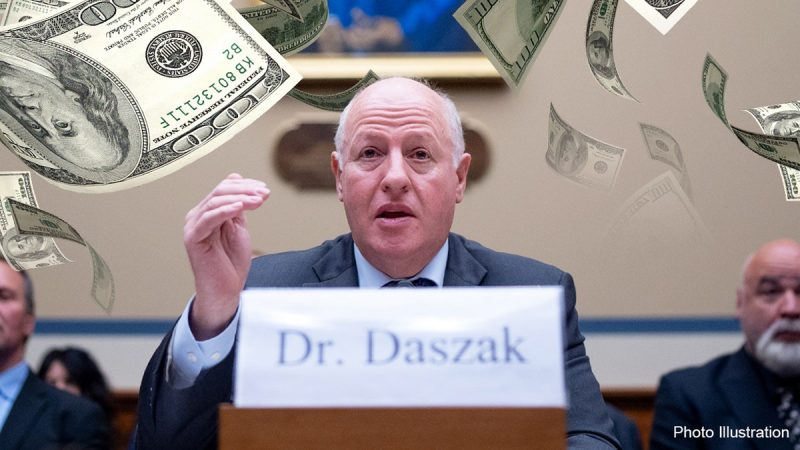Disgraced EcoHealth Alliance Reaped Nearly $100M in Taxpayer Funds Since 2008
Disgraced EcoHealth Alliance, a non-profit organization based in New York City, has recently come under scrutiny for its alleged involvement in controversial research projects that may have contributed to the global COVID-19 pandemic.
Since its establishment in 1971, EcoHealth Alliance has received nearly $100 million in taxpayer funds to support its research initiatives focused on global health and pandemic prevention. The organization has been a major recipient of grants from the US government, including the National Institutes of Health (NIH) and the United States Agency for International Development (USAID).
However, EcoHealth Alliance’s reputation has been tarnished in recent years due to its collaboration with the Wuhan Institute of Virology (WIV) in China. In 2014, the organization received a grant of $3.7 million from the NIH to study the risk of coronaviruses spilling over from bats to humans in China.
This research funding has raised concerns among some policymakers and scientists, who argue that EcoHealth Alliance’s partnership with the WIV may have inadvertently contributed to the emergence of COVID-19. The lab-leak theory, which suggests that the virus accidentally escaped from a laboratory in Wuhan, has gained traction in recent months, prompting calls for further investigation into the origins of the pandemic.
EcoHealth Alliance has faced criticism for its lack of transparency and accountability in its research activities, particularly in relation to its work with the WIV. The organization has been accused of downplaying the risks associated with gain-of-function research, which involves enhancing the virulence or transmissibility of pathogens to better understand their potential impact on human health.
Despite these controversies, EcoHealth Alliance continues to receive funding from the US government and other donors to support its research on emerging infectious diseases. The organization has defended its collaboration with the WIV as a crucial component of efforts to prevent future pandemics and mitigate the risks posed by novel pathogens.
Moving forward, it will be essential for EcoHealth Alliance to prioritize transparency, accountability, and ethical considerations in its research endeavors. As the world grapples with the devastating impact of the COVID-19 pandemic, there is a growing imperative to enhance global cooperation and coordination in pandemic preparedness and response efforts.
In conclusion, the case of EcoHealth Alliance highlights the complex ethical and scientific challenges associated with conducting research on emerging infectious diseases. As we strive to better understand the origins of COVID-19 and prevent future pandemics, it is imperative that organizations like EcoHealth Alliance uphold the highest standards of scientific integrity and ethical conduct in their pursuit of global health security.




























